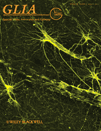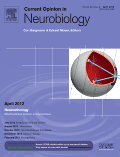
GLIA
Scope & Guideline
Leading the Charge in Neuroscience Innovation
Introduction
Aims and Scopes
- Neuroinflammation and Immune Responses:
Research on the role of glial cells, particularly microglia and astrocytes, in mediating neuroinflammation, immune responses, and their contributions to neurodegenerative diseases. - Myelination and Oligodendrocyte Biology:
Exploration of oligodendrocyte development, myelination processes, and the impact of glial cells on neuronal health and function, particularly in conditions like multiple sclerosis. - Glial Cell Heterogeneity and Function:
Studies focusing on the diversity of glial cell types, their distinct functions, and how this heterogeneity influences neurological health and disease. - Glia-Neuron Interactions:
Investigations into the complex interactions between glial cells and neurons, including how these interactions affect synaptic plasticity, neurotransmission, and overall brain function. - Regenerative Mechanisms:
Research aimed at understanding the regenerative potential of glial cells, particularly in response to injury and during disease, including the role of stem cells and neurogenesis. - Metabolic Regulation and Homeostasis:
Studies examining how glial cells regulate metabolic processes in the brain, including energy homeostasis, and their role in supporting neuronal function.
Trending and Emerging
- Role of Extracellular Vesicles:
Research on how glial-derived extracellular vesicles influence neuronal function and intercellular communication is gaining traction, highlighting their potential as biomarkers and therapeutic targets. - Astrocyte Plasticity and Regeneration:
Increasing attention is being given to the regenerative capabilities of astrocytes, particularly in response to injury, as studies explore their potential for promoting recovery in neurodegenerative diseases. - Neuroinflammation and Disease Mechanisms:
The relationship between chronic neuroinflammation and various neurological disorders is a rapidly growing area of research, emphasizing the role of glial cells in disease progression. - Sex Differences in Glial Function:
Emerging research is focusing on the influence of sex on glial cell function and neuroinflammatory responses, revealing important insights into how gender may affect disease susceptibility and outcomes. - Integrated Omics Approaches:
There is a notable trend towards using multi-omics approaches to understand glial cell biology, integrating genomics, proteomics, and metabolomics to uncover complex regulatory networks. - Mechanobiology of Glial Cells:
Studies investigating how mechanical forces and the physical properties of the extracellular matrix influence glial behavior and function are on the rise, reflecting a broader interest in glial mechanotransduction.
Declining or Waning
- Basic Astrocyte Functionality:
Research focusing solely on the basic functionalities of astrocytes, such as ion uptake and neurotransmitter recycling, appears to be waning as studies increasingly emphasize the complex interactions between glial cells and other cell types. - Single-Cell Analysis in Glial Research:
While single-cell techniques were once a major focus, there seems to be a shift towards integrating these findings with broader network studies and functional assays, indicating a transition towards more holistic approaches. - Traditional Neuroprotective Strategies:
There is a noticeable decrease in studies using traditional neuroprotective agents in isolation, as the field is now moving towards combinatorial and multi-target therapeutic strategies. - Static Models of Glial Function:
Research employing static in vitro models of glial function is becoming less common as dynamic models, including organoids and co-culture systems, gain prominence in exploring glial-neuronal interactions.
Similar Journals

NATURE NEUROSCIENCE
Exploring Innovative Insights in NeuroscienceNATURE NEUROSCIENCE is a premier journal published by NATURE PORTFOLIO, focusing on cutting-edge research in the field of neuroscience. With an esteemed impact factor that reflects its significance in the academic community, this journal occupies an exceptional place in the 2023 Q1 category for neuroscience (miscellaneous) and boasts a leading Scopus rank of #1 out of 113 in general neuroscience, placing it within the top 1st percentile. Since its inception in 1998, NATURE NEUROSCIENCE has consistently delivered high-quality, peer-reviewed articles that contribute to our understanding of the nervous system, driving innovation and scholarship across disciplines. Although it does not offer open access, the journal remains a vital resource for researchers, professionals, and students seeking to stay at the forefront of neuroscientific discovery and discussion. Its editorial commitment to excellence ensures that it continually shapes the trajectory of neuroscience research well into 2024 and beyond, making it an indispensable asset for anyone passionate about the brain and its complexities.

SYNAPSE
Advancing Knowledge, Shaping the Future of NeuroscienceSYNAPSE, an esteemed journal in the field of Cellular and Molecular Neuroscience, is published by Wiley and serves as a vital platform for disseminating groundbreaking research in neuroscience. Established in 1987, this journal has been pivotal in exploring the intricate mechanisms governing synaptic function and neural communication, contributing to our understanding of the nervous system. With an ISSN of 0887-4476 and an E-ISSN of 1098-2396, SYNAPSE is indexed in Scopus and currently holds a Q4 quartile ranking in its category, reflecting its niche yet significant presence within the research community. Despite its recent ranking in the 21st percentile among its peers, the journal’s commitment to quality and innovation remains unwavering. It is published from Hoboken, New Jersey, and although it is not an open-access journal, it provides invaluable insights and critical reviews that are pivotal for researchers, professionals, and students alike who seek to advance their knowledge in the dynamic field of neuroscience. Join us in contributing to the ever-evolving discourse in cellular and molecular neuroscience through SYNAPSE.

MOLECULAR IMMUNOLOGY
Unraveling Molecular Mysteries of ImmunityMOLECULAR IMMUNOLOGY, published by Pergamon-Elsevier Science Ltd in the United Kingdom, is a highly regarded journal in the fields of Immunology and Molecular Biology. With a focus on advancing the understanding of the immune system at the molecular level, the journal has been a critical resource since its inception in 1975. The journal is currently listed in the second quartile (Q2) of its category as per the 2023 rankings, indicating its substantial impact in both Immunology and Molecular Biology research. Researchers and professionals benefit from the journal's rigorous peer-review process and its commitment to publishing high-quality original research, reviews, and methodological studies that explore the intricate dynamics of immune responses. Although it does not currently offer an open access option, MOLECULAR IMMUNOLOGY remains an essential platform for scholars, emphasizing the significance of molecular interactions within the immune system and their implications in health and disease.

NATURE REVIEWS NEUROSCIENCE
Connecting insights with groundbreaking research.NATURE REVIEWS NEUROSCIENCE is a prestigious journal published by NATURE PORTFOLIO, renowned for its commitment to advancing the field of neuroscience. Since its inception in 2000, it has become a significant platform for disseminating comprehensive reviews and insights that shape the understanding of neurological science. With an impressive Scopus ranking of #2 out of 113 in the General Neuroscience category, this journal consistently engages the top 2% of researchers and professionals in the field, underscoring its impactful contributions. The journal not only provides a forum for high-quality reviews but also bridges emerging research trends with established knowledge, fostering a robust discourse among scholars and practitioners. As a Q1 journal in Neuroscience (miscellaneous), NATURE REVIEWS NEUROSCIENCE offers invaluable access to critical research developments, making it an essential resource for students, researchers, and professionals aiming to stay at the forefront of neuroscience advancements. Explore the latest findings and engage with a global community dedicated to unraveling the complexities of the nervous system.

Retrovirology
Advancing the Frontiers of Retroviral ResearchRetrovirology is a prominent open-access journal published by BMC since 2004, dedicated to the field of retroviral research. With a strong focus on advancing knowledge in both infectious diseases and virology, this interdisciplinary journal has achieved a commendable ranking of Q2 in its respective categories as of 2023, reflecting its significant contribution to the scientific community. Hosted in the United Kingdom, Retrovirology serves a global audience of researchers, professionals, and students, making vital research accessible to all without barriers. The journal's emphasis on high-quality peer-reviewed articles supports the dissemination of groundbreaking findings that could shape the future of virology and related fields. With an impressive Scopus ranking, including a percentile of 65th in Medicine: Infectious Diseases, it stands out as a valuable resource for those committed to understanding and combating viral diseases. Retrovirology continues to be an essential platform for innovative research, with its open-access model ensuring that transformational science reaches the widest possible audience.

NEUROSCIENTIST
Pioneering Insights into the Human BrainNEUROSCIENTIST is a leading journal in the field of clinical neurology and neuroscience, published by SAGE Publications Inc. With an impressive impact factor reflected in its Q1 quartile ranking in both clinical neurology and miscellaneous neuroscience as of 2023, this journal positions itself as a crucial platform for the latest research and advancements in the neural sciences. Spanning from 1995 to 2024, NEUROSCIENTIST features a range of high-quality, peer-reviewed articles that cater to researchers, practitioners, and students alike. Although it does not offer Open Access options, the journal remains a vital resource owing to its Scopus rankings, situating it within the top percentile of its categories: ranked #28 out of 400 in clinical neurology and #15 out of 113 in general neuroscience. The journal's commitment to disseminating significant findings underlines its importance in fostering advancements in neurological understanding and treatment.

Journal of Central Nervous System Disease
Unlocking the mysteries of the central nervous system.Welcome to the Journal of Central Nervous System Disease, a premier Open Access publication dedicated to advancing the understanding of neurological disorders and their underlying mechanisms. Published by SAGE Publications Ltd, this esteemed journal has been serving the scientific community since 2009 and is committed to disseminating high-quality research that spans from clinical neurology to cellular and molecular neuroscience. With an impressive impact factor, the journal ranks within the top quartiles—Q2 in both Neurology and Clinical Neurology, and Q3 in Cellular and Molecular Neuroscience as of 2023. The journal's indexing in Scopus reflects its significant contribution to the field, being ranked #83 out of 400 in clinical neurology and #38 out of 97 in cellular and molecular neuroscience. This essential resource, based in the United States, is crucial for researchers, clinicians, and students looking to stay at the forefront of neurological science. By providing Open Access options, we ensure that groundbreaking research is readily available to a global audience, fostering collaboration and innovation in the study of central nervous system diseases.

NEUROPATHOLOGY AND APPLIED NEUROBIOLOGY
Elevating the Discourse in Pathology and NeuroscienceNEUROPATHOLOGY AND APPLIED NEUROBIOLOGY is a premier journal dedicated to advancing the understanding of the intricate relationships between pathology and neurobiology. Published by Wiley since 1975, this journal has established itself as a crucial resource for researchers, clinicians, and students interested in the latest insights and developments in the fields of pathology, neurology, and neuroscience. With an impressive history of convergence extending to 2024, it boasts a Q1 ranking in multiple categories including Histology, Neurology, and Pathology, reflecting its high impact and reputation in the academic community. Additionally, it ranks 18th out of 208 in Pathology and Forensic Medicine with a remarkable 91st percentile, signifying its relevance and influence in medical research. While not open access, this journal provides valuable content that contributes significantly to the ongoing discourse in neurobiological advancements and is a vital reference for those engaged in this dynamic field.

ASN Neuro
Elevating Knowledge in Clinical Neurology and NeuroscienceASN Neuro is an esteemed academic journal published by Frontiers Media SA, focusing on critical advancements in the fields of neurology and neuroscience. Since its inception in 2009, it has established itself as an Open Access platform dedicated to fostering the dissemination of knowledge and research findings that address the complexities of the nervous system. With an impressive impact factor and consistently ranking in the top quartiles of its categories—Q1 in Neurology (clinical) and Q2 in Neuroscience (miscellaneous)—ASN Neuro is recognized for its high-quality publications that cater to the evolving challenges in clinical neurology and general neuroscience. Currently, it ranks 68th out of 400 journals in Clinical Neurology and 28th out of 113 in General Neuroscience, affirming its reputable position within the academic community. Researchers, professionals, and students alike are encouraged to contribute to and benefit from this impactful journal as it presents a unique opportunity to engage with cutting-edge research, innovative methodologies, and insightful reviews in the ever-evolving landscape of brain science.

CURRENT OPINION IN NEUROBIOLOGY
Fostering Scholarly Dialogue in NeuroscienceCURRENT OPINION IN NEUROBIOLOGY, published by CURRENT BIOLOGY LTD, stands as a premier interdisciplinary journal in the field of neuroscience, specifically focusing on the latest advancements and emerging trends in neurobiology. With an impressive impact factor bolstered by its classification in Q1 in the Neuroscience (Miscellaneous) category and a notable Scopus rank of #16 out of 113 within General Neuroscience, this journal serves as an essential resource for academics, professionals, and students alike. Since its inception in 1991, CURRENT OPINION IN NEUROBIOLOGY has consistently provided insightful reviews covering various aspects of neurobiological research, thereby enhancing our understanding of complex neural processes. While the journal is not open access, it remains committed to disseminating high-quality research and fostering scholarly dialogue, making it a critical platform for those seeking to keep abreast of the dynamic developments in neuroscience.